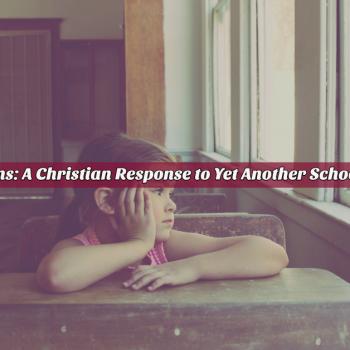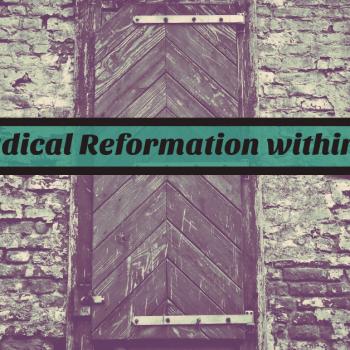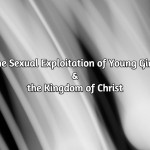As I look at my own religious tradition and begin to contemplate the book titled, Canaan Land: A Religious History of African Americans, by Albert J. Raboteau; it would be easy for me to say that this book does not relate to my experiences at all. I am a middle class white person of Mennonite Brethren decent. Never did I experience systemic racism, slavery, or discrimination. My racial identity has never been a limitation on opportunities for success and living the so-called American Dream. I have no compass for knowing what it must feel like to be marginalized like so many African Americans have experienced throughout their history in North America. Reading this book has been an attempt to understand the story of African American faith traditions, in hopes to be part of a movement of people that write the next chapter of history with the interests of all people in mind. With this as my aim, it is imperative that I begin by understanding how their history has shaped their modern identity. This will help me to identify contemporary issues that still need to be addressed in order to finally change the outlook on race and opportunity in the United States.
Bondage, Faith, and Liberation
After being forced to come to America and work as slaves, African Americans eventually learned the language of the land, English. With this, they were able to communicate with their white masters and eventually adopted some forms of the religious views of the European colonists. During the first 120 years of colonization, very few slaves were converted to the Christian faith.[1] After the emotional revivalism began to spread in the form of the Great Awakenings, African Americans found common ground in the energetic spirit of these movements.[2] Eventually, many slaves were converted to Christianity and themes of freedom (hidden in spiritual language) became a main focus.
This seems quite logical to me in regards to what they focused on theologically. If I were a slave, I imagine the story of Exodus, Exile, and return to the Promised Land would have a high appeal to my situation. As I state that, I have to wonder if I were to become a slave, would my response be to keep my faith in God? Slaves who had experienced conversion found their worth and importance from their faith.[3] I wonder if the roles were reversed, if the convenience driven middle class white person would retain faith in God; especially if the very people who had introduced the religion were also the ones who were enslaving me?
In the historical situation for the African Americans, the United States has acted more like an Egypt than it has been a Promised Land. This was true even after slavery was abolished. Instead of actual slavery, African Americans were forced to live in poverty; this, because of a lack of education and the lack of the United States government for providing pathways out of scarcity. Also, it seems that even though the slaves were ‘free,’ they were not seen as equal citizens; not even in most white churches! In this way, America continued to be an Egypt of bondage.
It seems to me that white America is the cause of the systemic poverty that still exists in the African American community. The lines of color have begun to blur in many ways, but still there must be a feeling of inequality for some black people. The images that I saw on the news immediately following hurricane Katrina raced into my mind as I read this book. African Americans were without homes, food, medical treatment, and hygiene; and it is much clearer why race became an issue during this turmoil. Most of the people who needed help in the New Orleans area did not receive it in a quick modern timeframe. It took several weeks for some of the people to receive the care that they both needed and deserved in the midst of a cultural crisis. I am trying to imagine what it would be like to have slavery, systemic poverty, and segregation in my history and to be living in the modern day. They would probably have thought that if a disaster ever were to strike on any American, that a plan of action would be quickly implemented. Instead it took several days for government aid to come through. If I were in that situation with that history, I would definitely see racism as a cause of much of my grief. Perhaps it is not fair to point the finger at specific racists per se, but at least to see a system that left thousands of black people in the margins once again. This was another moment in our history where the United States looked more like an Egypt.
So, how has reading a book like this enlightened my understanding of my own religious tradition? Well, I think it has given me an understanding of how real the suffering of the black people has been and still is in many cases. It has caused me to attempt to place myself within their story and to ask difficult questions. But what is the next step in the healing process? Is there any hope for America to leave the bondage of Egypt behind? I think that it must begin by confession of the racial barriers that still exist. Rather than trying to rationalize them away (the approach of most whites in our country and churches), perhaps we must acknowledge that there is some credibility to those who play the so-called ‘race card’ in our culture. The call of our nation and church must be to heal systemic poverty in the black community through repentant acts of charity. Then perhaps we can walk forward, released from the bondage of Egypt as one united and equal multicolored people moving towards Promised Land of “new heavens and new earth.”
[1]Raboteau, Albert J., Canaan Land: A Religious History of African Americans (New York: Oxford University Press, 2001), 16.
[2]Ibid., 18.
[3]Ibid., 46.












